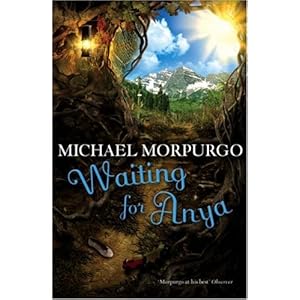 Twelve year old Jo, a shepherd boy, lives in a small French mountain village, during the late 1930s-early 1940s. World War II's broken out, and Jo's father is away in action, while Jo is assuming some of his father's responsibilities, and simultaneously attending school. The War is far away from this village, and to Jo it almost seems quite unreal, and he's unsure of his opinion about it.
What Jo thought about the war and about the occupation seemed to depend on whether he had just talked to Maman or to Grandpere: he could never make up his mind.
Twelve year old Jo, a shepherd boy, lives in a small French mountain village, during the late 1930s-early 1940s. World War II's broken out, and Jo's father is away in action, while Jo is assuming some of his father's responsibilities, and simultaneously attending school. The War is far away from this village, and to Jo it almost seems quite unreal, and he's unsure of his opinion about it.
What Jo thought about the war and about the occupation seemed to depend on whether he had just talked to Maman or to Grandpere: he could never make up his mind.
His mother just wanted the War to end, and his father to come home, whereas his grandfather was eyeing victory.
However, things change drastically for Jo, when he discovers that Widow Horcada and her son in law are smuggling young Jewish children into Spain, in order to help them escape a worse fate at the hands of the Germans. The Widow is supposed to be an unpopular woman in the village, due to her sharp tongue and dislike for children - The children in the village called her 'The Black Widow', and not just on account of the long black shawl she always wore over her head.
Bernard, the son in law, and the Widow insist that Jo keeps a secret, and Jo, albeit unhappy about lying to his mother and grandfather, agrees to do so. He even takes on the responsibility of helping the Widow with her food-shopping, as more and more children find shelter in her barn. However, when the Germans start patrolling the Spanish border, danger for the children and the adult pair seems imminent. Jo continues to stick to his convictions to help them, at all costs, and earns the trust and respect of the Widow as well, over time.
This is an adventure story, a story about the Holocaust, and World War II. More importantly, it's a story about unity, human nature, bravery, friendship and a child's innocence. It talks about the pointlessness of War, and how both parties stand to lose. It touches upon how some Germans don't understand what they're fighting for, and how they are losing their families and loved ones as well. It poignantly shows the difficulties a soldier faces on coming back home, after four years, when life has moved on for this family, despite his absence. And it is essentially a story about a few people who are ready to sacrifice everything to do the right thing.
A descriptive, eloquently written text, Waiting For Anya is one of those books that is bound to bring a tear to the eye, specially right at the end, when Jo is introduced to Anya, Bernard's daughter. Anya and Bernard left Paris together, but got separated en route to the Widow's place. They had a promise that they'd wait for each other there, and Bernard had full faith that his daughter would be back one day: Two years, ten years, however long it takes. She'll come. And when she does, we'll be waiting for her just like I promised her.
Overall, a 7 on 10 - probably a notch below the likes of The Book Thief and The Boy In The Striped Pajamas, when it comes to children's books based during the World War II era, but, a must-read anyway.
 I don’t know why I picked up this book. It might have been because I’ve got The Butterfly Lion and Private Peaceful on my reading list. It might be because it was the only book that looked tempting at Waterstones the other day (and I couldn’t find a copy of The Great Gatsby - the book I actually wanted to purchase). I don’t know - but, I picked it up, and silently cursed myself, for... the last couple of times I’ve picked up a book without reading any reviews, I’ve regretted it (Suspicions of Mr. Whicher being a prime example). But, this book ended up restoring my faith in impulsive book buying.
I don’t know why I picked up this book. It might have been because I’ve got The Butterfly Lion and Private Peaceful on my reading list. It might be because it was the only book that looked tempting at Waterstones the other day (and I couldn’t find a copy of The Great Gatsby - the book I actually wanted to purchase). I don’t know - but, I picked it up, and silently cursed myself, for... the last couple of times I’ve picked up a book without reading any reviews, I’ve regretted it (Suspicions of Mr. Whicher being a prime example). But, this book ended up restoring my faith in impulsive book buying.